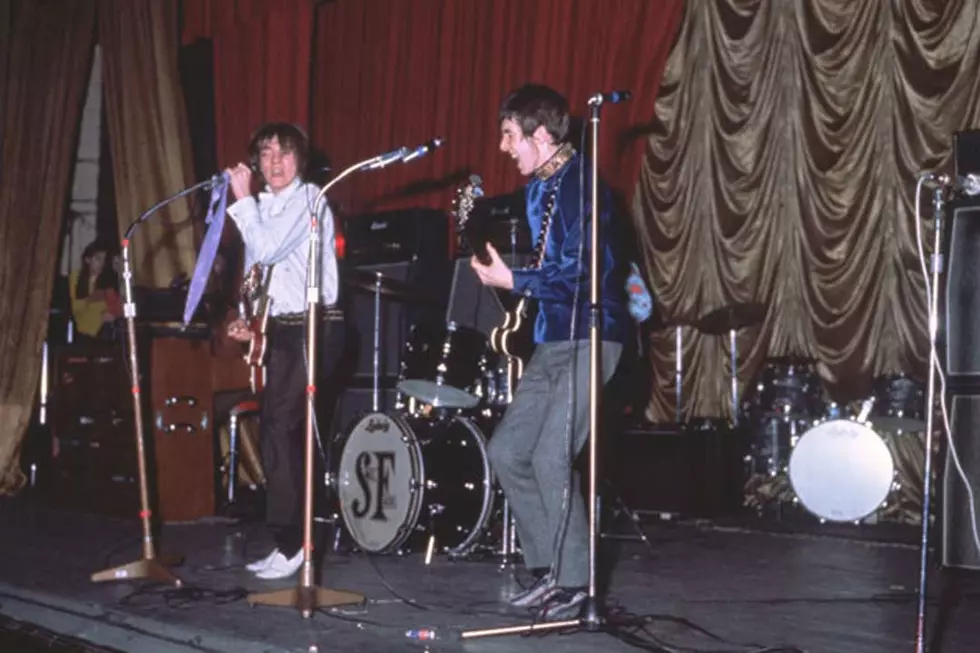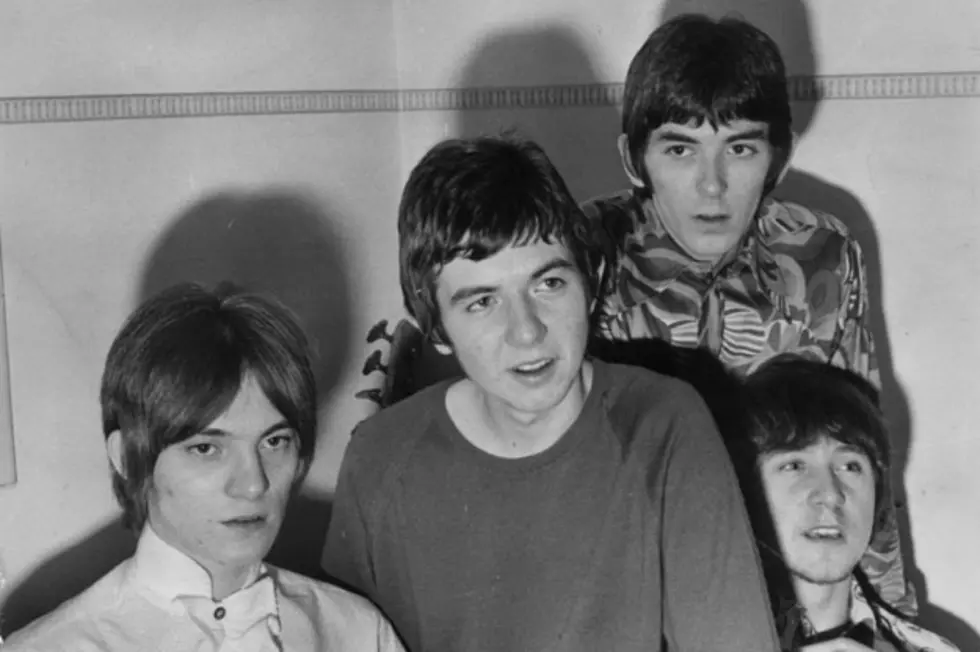
When the Small Faces Released Their Debut Album
The sound of Motown was everywhere in 1965. The label's songs were heard around the globe, as "the sound of young America" made a huge impact on what was to become the sound of young England. A number of overseas groups were inspired by those tracks, none more so than the Small Faces.
"The Small Faces, the Who and various other bands came along, all copying what they were hearing from across the Atlantic, but with a different twist," engineer Glyn Johns said in the Small Faces bio, The Young Mods Forgotten Story. The U.K. kids recast blues and soul music from the States in their own mold, which soon evolved into the Mod youth movement.
"The fashion thing, the hair, the clothes, the whole Mod thing. Nobody at the record company got that. They didn't understand that side of it," Johns added. "By the time the first Small Faces LP was done, they had woken up to the fact that there was an enormous amount of money to be made out of this stuff."
The Small Faces formed in early 1965, beefing up their love of American music with a stash of loud guitars, crashing drums, youthful attitude – and a touch of Mod style. The band signed to Decca Records and released its debut single, the stomping "Whatcha Gonna Do About It?" in the summer of 1965. It hit the U.K. Top 20 and was quickly followed by "Sha La La La Lee" and "Hey Girl."
Their first self-titled album followed in May 1966. But unlike most British rock acts of the era, the Small Faces included two of their early hit singles ("Sha La La La Lee" and "Whatcha Gonna Do About It") on the record, which helped push it to No. 3 in the chart. It didn't hurt that Small Faces was a blast of power, energy and enthusiasm from start to end.
During the sessions for the album, original keyboardist Jimmy Winston was replaced by Ian McLagan. ("When I first met the other Faces it was like looking at a mirror," McLagan later recalled. "I couldn't believe it! We all looked alike.") McLagan appears on the LP's cover, but both musicians perform on various songs, the bulk of which were written by band members.
There's also a stomping cover of Sam Cooke's "Shake" which opens the album, and elsewhere, "Come On Children" helps define the early Small Faces sound as singer Steve Marriott lets loose. "It's Too Late," "One Night Stand" and "E to D" show off the budding songwriting team of Marriott and Ronnie Lane.
McLagan is thrust into the spotlight on the instrumental rave-up "Own Up Time," which also features a full-volume presentation of Marriott's guitar and a great moment for drummer Kenney Jones. And then there's "You Need Love," one of the band's greatest moments. It's based on the blues number "You Need Love," which was written by Willie Dixon and originally performed by Muddy Waters. The Small Faces use that song as a template, shaping it into something distinctly their own.
While "You Need Love" was never released as a single, its impact was great on other British musicians. A few years later, Jimmy Page and Robert Plant borrowed it for Led Zeppelin's "Whole Lotta Love," a mix of Dixon's framework and the Small Faces' phrasings. (Led Zeppelin later give Dixon a partial writing credit, even though they appropriated just as much from the Small Faces' rewrite.)
Not long after the album's release, the band jumped ship from Decca to join Andrew Loog Oldham's new label Immediate Records. Decca replied to the move by issuing a compilation of session outtakes, From the Beginning, in 1967. That same year, the Small Faces released their second album, which was again titled Small Faces. By decade's end, however, they'd evolved into the Faces with a new singer and outlook.
See the Faces Among the Top 200 '70s Rock Songs
More From Ultimate Classic Rock









